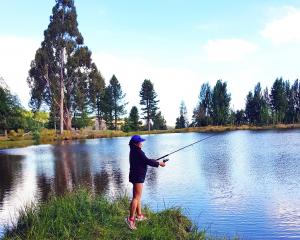For more than 15 years, the camping ground's owner has been embroiled in a battle with the Waitaki District Council over its legality. The hearing in Oamaru this week the fourth time the issue has gone before the Environment Court over either resource consents or an abatement notice on owner Allan Jones in December last year, ordering he cease operating visitor accommodation (a camping ground).
He clainmed exsiting use rights, saying there had been camping on the 1.22ha site on the south side of the Kakanui River next to Waianakarua Rd, since the 1950s.
The appeal was challenged by the council, supported by site neighbours Bob and Linda Hildeman, before Judge Gordon Whiting and commissioners Kevin Prime and Katherine Edmonds.
On Thursday, Judge Whiting issued an interim decision amending the abatement notice, directing Mr Jones to cease operating the camping ground, except for five camping sites at any one time, including caravans, tents, motorhomes and cabins.
The camping ground has 30 tent and caravan sites, according to its website.
Judge Whiting said the abatement notice would also prevent "any creep" (expansion) of the camping ground in the interim.
Mr Jones was directed to file with the council within five working days an amended resource consent application to operate the camping ground, and the council to publicly notify it for submissions 10 working days after receiving it.
The application would then follow the normal Resource Management Act process.
Judge Whiting said it became apparent, from evidence, the hearing would not end the issue and may well complicate it, resulting in increased costs for all parties and the court.
Mr Jones and the parties would proceed with an amended resource consent application, to a determination as soon as possible. The determination could end the matter, or if one or more parties appealed, it would be beneficial for the court to hear both the appeal and abatement notice together.
In December, Mr Jones had filed with the council a resource consent application, but it had been on hold, subject to further information being provided by him. Agreement had been reached on an amended consent application, which would now be filed to meet the court's direction.











